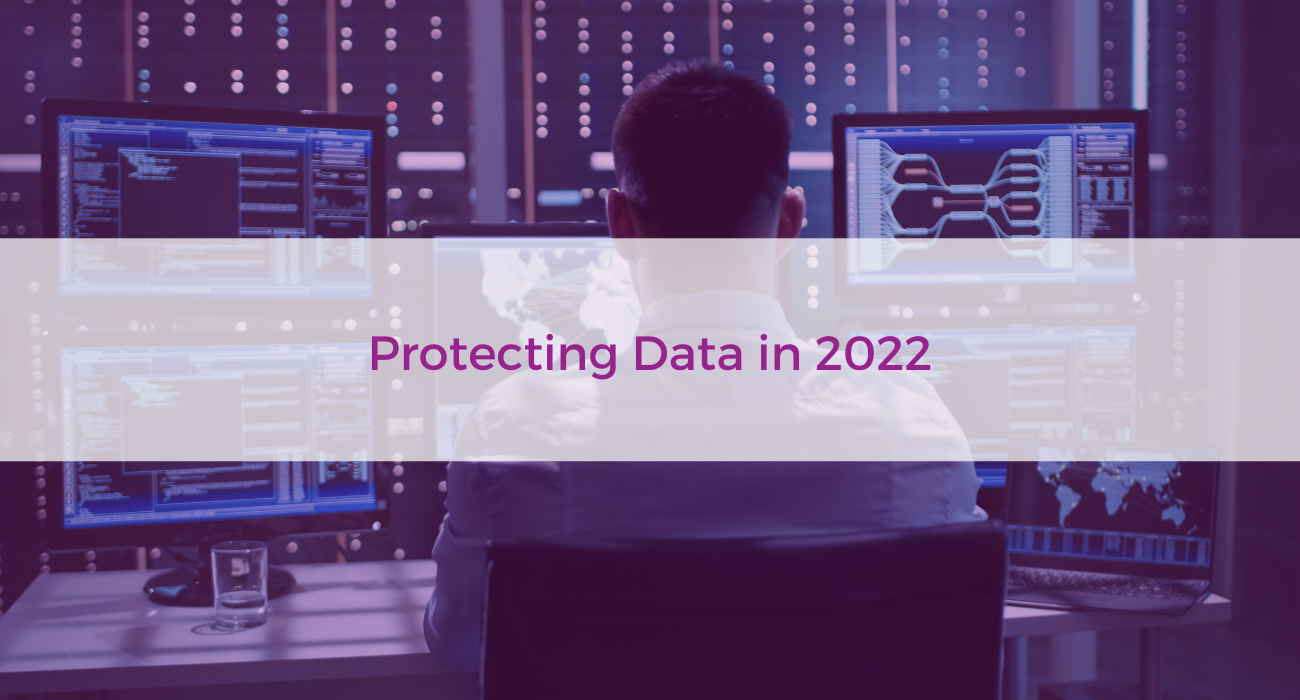
Protecting Data in 2022
As data breaches and ransomware attacks continue to dominate the news agenda, cyber security should be a priority for all businesses, both large and small. Last year, the number of reported data breaches reached an all-time high and rose by 68% in the US alone, and in the UK, 39% of businesses reported having a cyber security breach in the last 12 months. So what can businesses do to ensure they remain protected?
No target is too small
When high-profile brands fall victim to cyber security attacks, news of the incident usually attracts significant media attention. While attacks on smaller businesses might not generate the same level of coverage, they are certainly not in the clear. In fact, smaller organisations could find themselves more vulnerable to an attack, often without dedicated cyber security experts and with less access to the right resources. It is, therefore, important that businesses of all sizes take the threat seriously and remain vigilant.
Data breaches are not always caused by external threats
A recent study by Stanford University highlighted that 43% of people have made mistakes at work that compromised cyber security and 88%of breaches are caused by an employee mistake. With human error playing such a key role in causing breaches, it is clear that companies need to shift its focus away from infrastructure and towards equipping staff to identify cyber threats. Are passwords strong enough? Have they been compromised in the past? Have the staff been trained on spotting phishing emails?
This is particularly important at a time when organisations around the world are adopting hybrid working models. While for many, remote working brings the benefits of a better work-life balance, companies are grappling with ensuring that remote working environments are fit for purpose – with secure connections and employees following protocols as they would in the office.
Avoid a compliance-led approach
From General Data Protection Regulation (GDPR) to Payment Card Industry Data Security Standard (PCI DSS) and The Health Insurance Portability and Accountability Act (HIPAA), companies are aware of the need to comply with data regulations to avoid costly fines.
While compliance is clearly important, cyber security is not a tick box exercise and should be continually evaluated and improved. If businesses view meeting regulations as part of its ongoing strategy, rather than the end goal itself, it is much more likely that data will remain protected. The cyber security landscape is ever-changing, meaning strategies to keep information protected should continually evolve.
From Certes Networks to VIPRE, Neo PR works with various cybersecurity-focused clients to get them heard above background noise, particularly in such an in-demand and changing industry. As PR experts in the cyber-security field, get in touch with the team at prworks@neopr.co.uk to discuss how Neo PR can enhance your brand.




